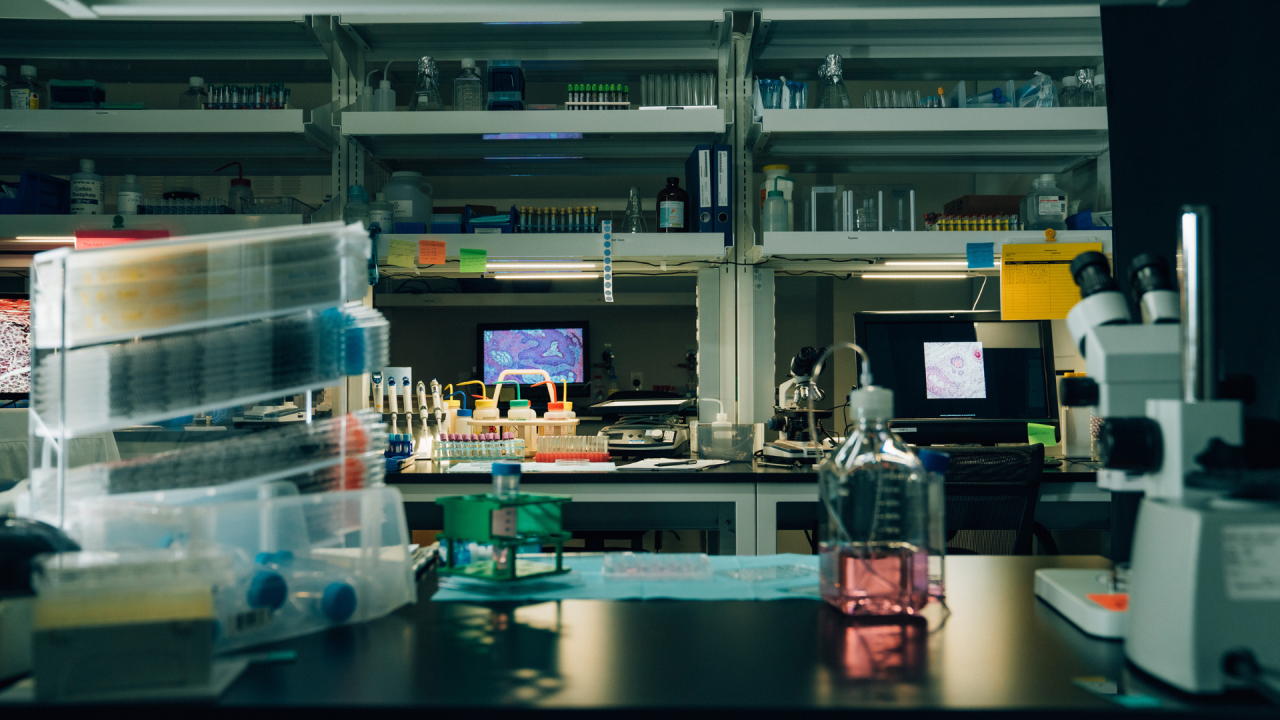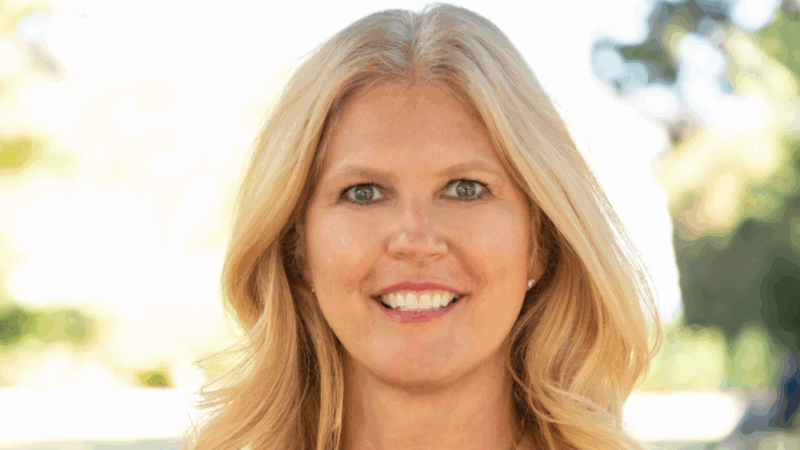
25 Years of Advancing Cancer Genomics Education: Insights from City of Hope Expert Heather Hampel
City of Hope shared a post on LinkedIn:
“Heather Hampel, M.S., CGC, is an internationally recognized cancer genetic counselor and researcher whose groundbreaking work in universal tumor screening has fundamentally changed how we approach genetic screening for colorectal and endometrial cancer patients.
Since joining City of Hope’s Department of Medical Oncology in 2021 from The Ohio State University Comprehensive Cancer Center, she has brought her expertise in Lynch Syndrome detection and hereditary cancer risk assessment to advance personalized medicine approaches for patients and families. In fact, Heather’s passion for cancer genetics and personalized medicine started decades ago when she experienced a personal loss.

With over 170 publications focused on Lynch Syndrome prevalence, testing protocols and cost-effectiveness in colorectal and endometrial cancer patients, Heather’s research has directly influenced standard-of-care practices worldwide.
Her leadership extends beyond research, as she has served in numerous national roles, including President of the American Board of Genetic Counseling, President of the Collaborative Group of the Americas on Inherited Gastrointestinal Cancers and Secretary/Treasurer of the National Society of Genetic Counselors. Her educational background includes a B.S. in Molecular Genetics from The Ohio State University and an M.S. in Human Genetics from Sarah Lawrence College.
As a distinguished faculty member of the Intensive Course in Genomic Cancer Risk Assessment and the Clinical Cancer Genomics Community of Practice (CCGCoP) since 2015, Heather has been instrumental in training healthcare providers worldwide to deliver cancer genetics services in their communities.
We spoke with Heather about the transformative impact of this internationally recognized program, which is celebrating its 25th anniversary in 2026.
You have been a distinguished faculty member of the Intensive Course and the CCGCoP since 2015. In your experience, what has been the most valuable part of being involved in such a unique community for your practice and professional development?
The most valuable aspect of the Clinical Cancer Genomics Community of Practice (CCGCoP) has been the tremendous network of cancer genetics experts it provides. With more than 2,000 members across all 50 states and 37 countries, this community represents one of the most comprehensive resources for cancer genomics practitioners worldwide.
As healthcare professionals, we never stop learning, and the collaborative environment fostered by this diverse, international community has been transformative for both my practice and professional growth.
What I find particularly powerful is the robust support system built into the community. The weekly Clinical Cancer Genomics Case Conference Series provides CME-accredited opportunities to discuss challenging cases with interdisciplinary teams, while the Topics in Clinical Cancer Genomics webinar series keeps us current on timely issues in our rapidly evolving field.
The CCGCoP Portal serves as our central hub, offering exclusive access to clinical resources, discussion boards and collaborative practice-based support that’s available 24/7.
This comprehensive network has enhanced my ability to provide the highest quality care to my patients, especially when dealing with rare hereditary cancer syndromes or complex genetic counseling scenarios. The diversity of perspectives, from practitioners working in different geographic regions, healthcare systems and patient populations, has broadened my understanding and approach to cancer genetics.
Whether it’s through real-time consultations during case conferences or ongoing discussions in our online communities, the CCGCoP provides an unparalleled level of professional support that extends far beyond the initial Intensive Course experience.
What do you consider the greatest impacts of Genetic Cancer Risk Assessment and Genetic Testing on our patients and their families?
The impact of genetic cancer risk assessment and testing extends far beyond individual patients. It creates a ripple effect that can literally save lives across entire families and future generations. Through the Intensive Course, we’ve trained healthcare providers who have gone on to serve patients in communities that previously had little to no access to cancer genetics services.
I firmly believe that the Intensive Course has likely prevented thousands of cancer cases and saved countless lives by democratizing access to cancer genetics knowledge. When we train a single healthcare provider, they return to their community equipped to identify high-risk patients, provide appropriate genetic counseling and implement life-saving surveillance and prevention strategies.
For patients and families, genetic risk assessment provides clarity in uncertainty. It helps identify individuals who would benefit from enhanced screening protocols, risk-reducing medications or even prophylactic surgeries. Equally important, testing can provide reassurance to family members who learn they did not inherit a cancer predisposition, allowing them to follow standard screening guidelines rather than living with unnecessary anxiety.
The family-centered approach is crucial. When we identify a hereditary cancer syndrome in one individual, we can cascade that information to relatives, potentially preventing cancers before they occur. This is precision medicine at its most impactful — using genetic information to personalize both treatment and prevention strategies.
What role do the Intensive Course and CCGCoP play in expanding access to these services to patients across the US and around the world?
The Intensive Course and CCGCoP serve as critical bridges in addressing the significant gap between the growing need for cancer genetics services and the availability of trained providers. Many graduates of our program work in geographic areas, both domestically and internationally, that previously had limited or no expertise in cancer genetics.
This training is often the only pathway for individuals in underserved communities to access cancer genetics services. Rather than requiring patients to travel hundreds of miles to major academic medical centers, we’re bringing the expertise directly to their local healthcare providers. This model is particularly impactful in rural areas, smaller cities and developing countries where specialized genetic counselors may not be available.
The international reach of our program is remarkable, with CCGCoP members practicing across 37 countries. This global network facilitates knowledge sharing about population-specific cancer risks, cultural considerations in genetic counseling and varied healthcare delivery models.
The ongoing professional development through the community of practice ensures that providers stay current with rapidly evolving genetic technologies and clinical guidelines, regardless of their location. By training healthcare professionals who are already embedded in their communities, we’re creating a sustainable model for expanding access to cancer genetics services worldwide.
Who should consider taking the Intensive Course, and how do they apply?
The Intensive Course is designed for any healthcare professional who wants to become proficient in cancer risk assessment, whether they plan to provide genetics services directly or simply want to become more confident in identifying patients who would benefit from genetic evaluation.
Primary audiences include:
- Physicians in oncology, surgery, primary care and other specialties who regularly encounter patients with cancer or strong family histories
- Advanced Practice Providers, including nurse practitioners and physician assistants, who want to expand their scope of practice in cancer genetics
- Genetic Counselors seeking specialized expertise in cancer genetics or those transitioning from other genetics specialties
- International Healthcare Providers looking to bring cancer genetics services to their communities
The course is particularly valuable for providers working in community-based settings where access to genetics specialists is limited. Even if you don’t plan to become a cancer genetics provider yourself, understanding the fundamentals helps you provide better care to high-risk patients and make appropriate referrals.
For Genetic Counselors specifically: The Intensive Course offers a deeper level of cancer genetics expertise than most graduate training programs can provide in this specialized area. It’s especially beneficial if you’re entering cancer genetics from another specialty or want to enhance your knowledge of hereditary cancer syndromes.
The course structure accommodates different learning needs and geographic constraints, offering both full participation with in-person workshops and distance learning-only options. Upon completion, you’ll join a global community of practice that provides ongoing support throughout your career.
Application Information: Applications for the upcoming cohort are accepted through August 1, 2025. Apply early, as space is limited. You can find more information about the course and the application process here, or contact City of Hope Cancer Genomics Education Program Director Kathleen Blazer and our team at [email protected].
More posts featuring City of Hope.
-
Challenging the Status Quo in Colorectal Cancer 2024
December 6-8, 2024
-
ESMO 2024 Congress
September 13-17, 2024
-
ASCO Annual Meeting
May 30 - June 4, 2024
-
Yvonne Award 2024
May 31, 2024
-
OncoThon 2024, Online
Feb. 15, 2024
-
Global Summit on War & Cancer 2023, Online
Dec. 14-16, 2023
